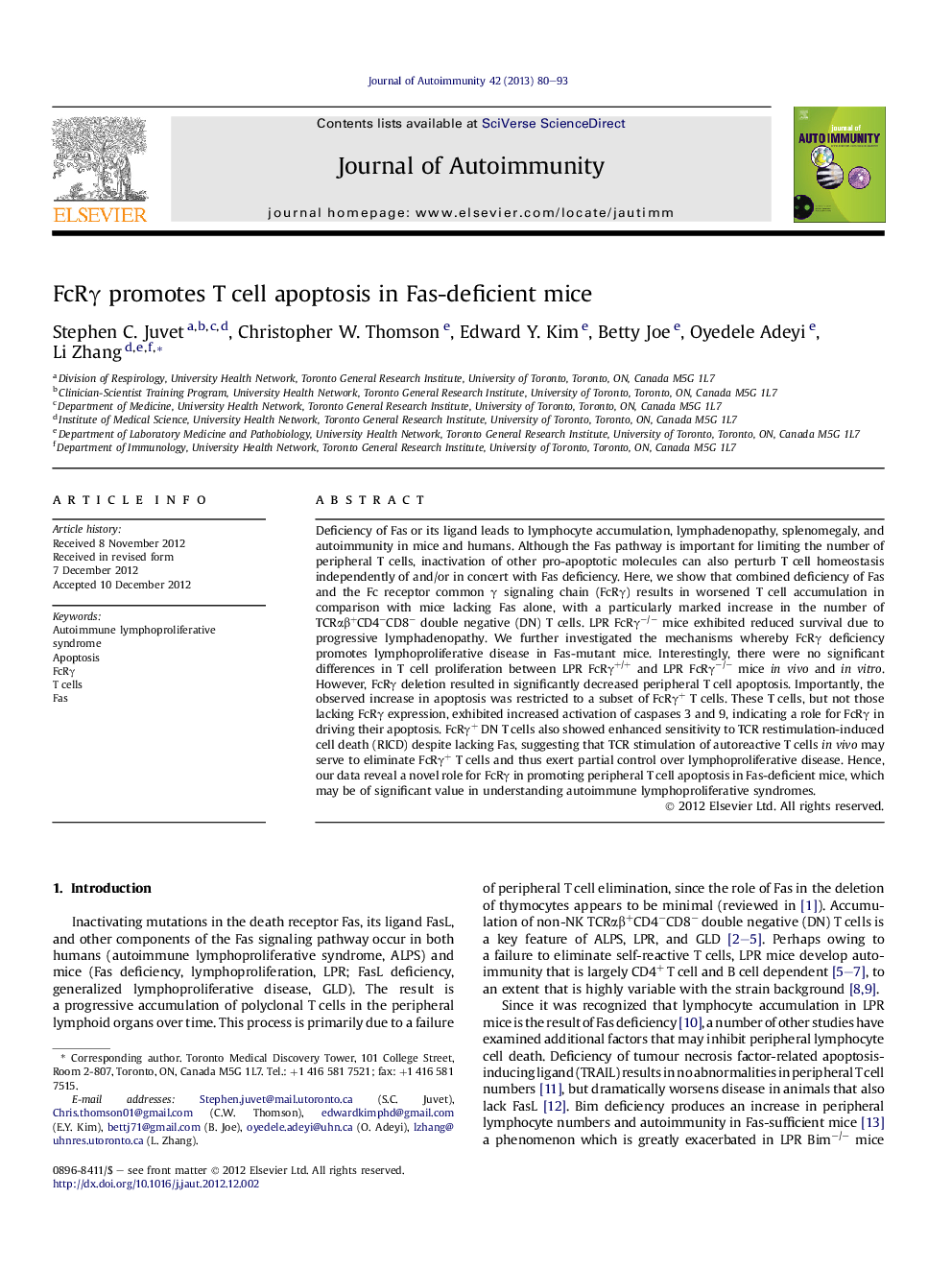| Article ID | Journal | Published Year | Pages | File Type |
|---|---|---|---|---|
| 3367884 | Journal of Autoimmunity | 2013 | 14 Pages |
Deficiency of Fas or its ligand leads to lymphocyte accumulation, lymphadenopathy, splenomegaly, and autoimmunity in mice and humans. Although the Fas pathway is important for limiting the number of peripheral T cells, inactivation of other pro-apoptotic molecules can also perturb T cell homeostasis independently of and/or in concert with Fas deficiency. Here, we show that combined deficiency of Fas and the Fc receptor common γ signaling chain (FcRγ) results in worsened T cell accumulation in comparison with mice lacking Fas alone, with a particularly marked increase in the number of TCRαβ+CD4−CD8− double negative (DN) T cells. LPR FcRγ−/− mice exhibited reduced survival due to progressive lymphadenopathy. We further investigated the mechanisms whereby FcRγ deficiency promotes lymphoproliferative disease in Fas-mutant mice. Interestingly, there were no significant differences in T cell proliferation between LPR FcRγ+/+ and LPR FcRγ−/− mice in vivo and in vitro. However, FcRγ deletion resulted in significantly decreased peripheral T cell apoptosis. Importantly, the observed increase in apoptosis was restricted to a subset of FcRγ+ T cells. These T cells, but not those lacking FcRγ expression, exhibited increased activation of caspases 3 and 9, indicating a role for FcRγ in driving their apoptosis. FcRγ+ DN T cells also showed enhanced sensitivity to TCR restimulation-induced cell death (RICD) despite lacking Fas, suggesting that TCR stimulation of autoreactive T cells in vivo may serve to eliminate FcRγ+ T cells and thus exert partial control over lymphoproliferative disease. Hence, our data reveal a novel role for FcRγ in promoting peripheral T cell apoptosis in Fas-deficient mice, which may be of significant value in understanding autoimmune lymphoproliferative syndromes.
► Mice doubly deficient in Fas and FcRγ (LPR FcRγ−/−) exhibited early mortality. ► Death was due to severe T cell accumulation and cervical lymphadenopathy. ► FcRγ-expressing LPR T cells were apoptosis-prone in vitro and in vivo. ► FcRγ promoted T cell apoptosis only in the setting of Fas deficiency. ► Implications for autoimmune lymphoproliferative syndrome are discussed.
